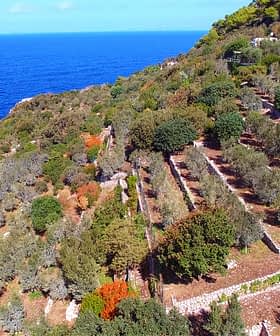The Italian Antitrust Authority (AGCM) has prohibited the use of Nutri-Score front-of-pack labels on dozens of products currently sold in Italy.
The AGMC’s latest measures prohibit Nutri-Score ratings from being added to Italian food products with a Protected Designation of Origin (PDO) or Protected Geographical Indication (PGI) certification from the European Union.
The AGCM decision represents a step forward for the right of the consumer to be correctly and fully informed to make his or her choices about food and health.
As a result of the AGCM’s decision, retailers have 90 days to remove affected products with Nutri-Score ratings on their labels from their shelves.
While some food producers and smaller chains have decided to drop all Nutri-Score ratings altogether, larger multinational chains will continue to shelve non-prohibited products with the Nutri-Score ratings.
See Also:Nutri-Score Algorithm Update Improves Olive Oil ScoresHowever, the AGCM also stipulated that any product with a Nutri-Score rating must be accompanied by a sign with a QR code, which the authority argues will allow shoppers to learn more about Nutri-Score and how its algorithm calculates the scores.
Nutri-Score uses a traffic-light-style label to rate food based on 100-gram or milliliter samples. It considers the food item’s calorie, fat, sugar and salt content.
Foods are labeled with one of five colors and letters on a scale ranging from the healthiest “Green A” down to the “Red E.”
The AGCM said it made its decision to “correctly inform consumers” about the nutritional information and cultural context of certain food items that are not taken into account by Nutri-Score’s algorithm.
“[The decision] is also aimed at raising awareness in the food sector about the nature and the workings of the parameters upon which the voluntarily-adopted label is based,” the authority added.
Confagricoltura, a farmers’ association, celebrated the decision as a significant victory against the more widespread adoption of Nutri-Score.
The association’s lawyers brought the case that resulted in the partial ban in front of the AGCM after accusing Nutri-Score of over-simplifying nutrition and hurting consumers.
“The AGCM decision represents a step forward for the right of the consumer to be correctly and fully informed to make his or her choices about food and health,” said Massimo Giansanti, Confagricoltura’s president.
He added that Nutri-Score ratings should be replaced with those of the rival Nutrinform Battery, which shows the energy intake of the products as well as their nutritional values using a battery graphic.
However, some research has indicated that Nutri-Score is more effective than Nutrinform Battery, which critics have argued is counterintuitive and “clumsy.”









